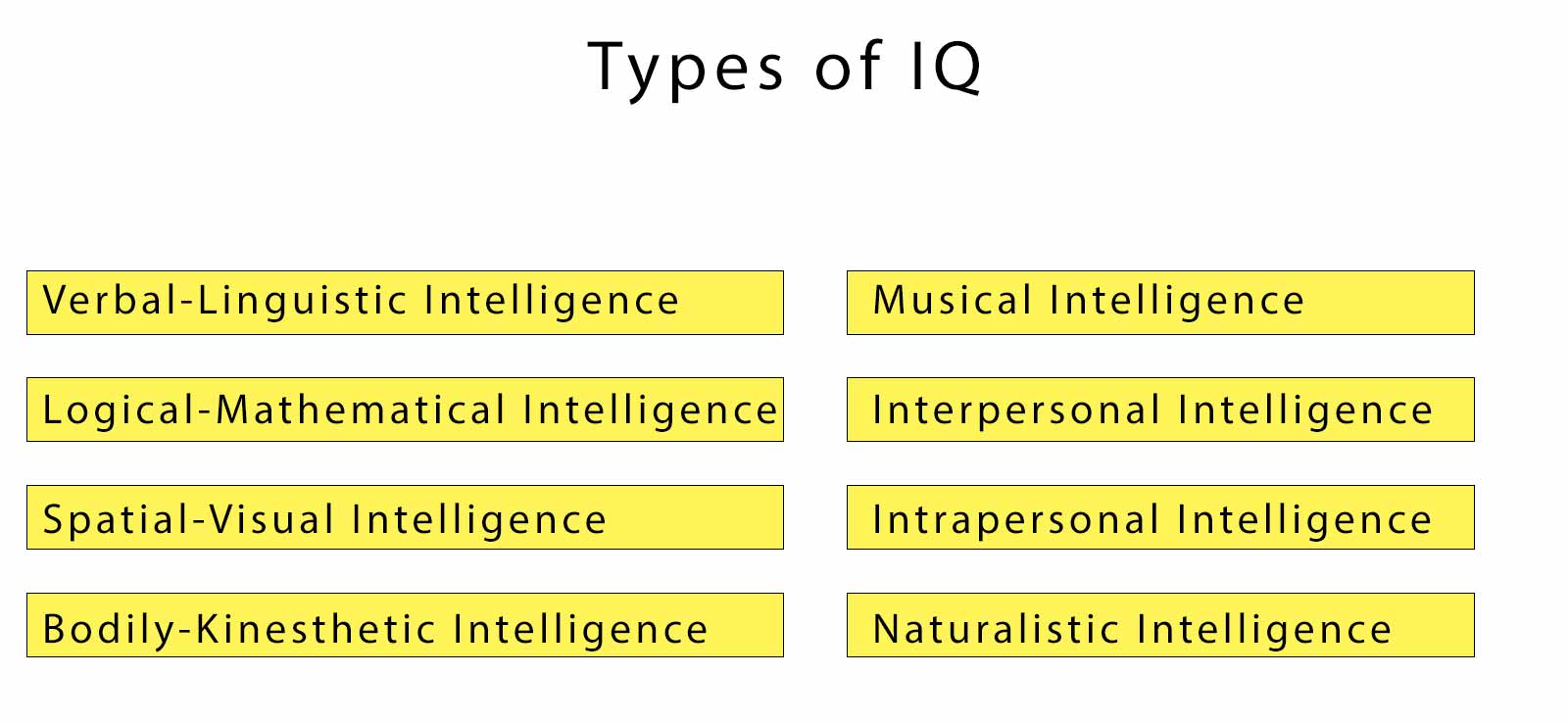Types of IQ
When we talk about intelligence quotient, or IQ, we're diving into the complex world of human cognitive ability. It's like opening a toolbox and finding an array of tools, each designed for a specific task. Originally developed in the early 20th century, IQ tests were the brainchild of psychologists who wanted to quantify human intelligence. But over time, our understanding of what intelligence really means has evolved. It's not just about solving math problems quickly or having a large vocabulary. Intelligence is multifaceted, encompassing a range of abilities from problem solving and reasoning to creativity and emotional understanding. So when we talk about IQ, we're not just talking about book smarts. We're recognizing a broader range of intellectual abilities that determine how we navigate the world.
About IQ

At its core, IQ is a measure that reflects an individual's cognitive abilities relative to the population. Think of it as a score that tells you how your problem-solving and reasoning skills stack up against those of the average person. But here's the kicker: IQ is about more than just being good at puzzles and trivia. It plays a crucial role in educational settings, helping to identify students who may need extra support or those who could benefit from more challenging material. Beyond the classroom, IQ scores have been linked to career success and personal development, providing a piece of the puzzle in understanding an individual's potential.
But it's not all black and white. There are a lot of misconceptions about IQ scores. Some people think that a high IQ is a ticket to success, but that's not the whole story. Intelligence is dynamic, influenced by a mix of genetic factors and life experiences. And traditional IQ tests have their limitations, often overlooking creative and emotional intelligence. So while IQ scores can provide valuable insights, they're not the definitive measure of a person's intellect or potential. It's important to remember that everyone has a unique set of strengths, and intelligence can manifest itself in countless ways beyond what any test can measure.
Types of Intelligence Measured by IQ Tests
Verbal-Linguistic Intelligence
This type of intelligence is all about the power of words. Those with high verbal-linguistic intelligence have a knack for weaving words in writing and speech, making them effective communicators. They excel in fields where language is key—think authors, educators, and legal professionals. In their hands, words become tools to inform, persuade, and inspire.
Logical-Mathematical Intelligence
Here, we delve into the realm of logic and numbers. Individuals with strong logical-mathematical intelligence possess the ability to reason, calculate, and think abstractly. They're the problem solvers, the ones who see patterns where others see chaos. Engineers, scientists, and financial experts often have this type of intelligence in spades, applying it to innovate and analyze.
Spatial-Visual Intelligence
Imagine being able to think in pictures and spatial dimensions. That's spatial-visual intelligence for you. It's crucial for architects, who envision and design the spaces we live and work in, artists who create visual masterpieces, and graphic designers who communicate through images. This intelligence allows them to manipulate space and form in their mind's eye, bringing ideas to life.
Bodily-Kinesthetic Intelligence
The body can be just as expressive as words or numbers, and those with bodily-kinesthetic intelligence prove it. They have an exceptional ability to control their body movements and handle objects skillfully. Athletes display extraordinary physical feats, dancers tell stories through movement, and surgeons perform intricate procedures—all thanks to this form of intelligence.
Musical Intelligence
To some, music is a language of its own. Musical intelligence is characterized by a sensitivity to rhythm, pitch, and melody. Musicians and composers have this intelligence in abundance, using it to produce harmonies that can evoke a wide range of emotions and connect with audiences on a deep level.
Interpersonal Intelligence
Understanding and interacting with others is a complex skill, rooted in interpersonal intelligence. This intelligence shines in those who navigate social interactions with ease, whether they're psychologists unraveling the human psyche, teachers shaping minds, or salespeople forging connections. It's about empathy, communication, and the ability to read social cues.
Intrapersonal Intelligence
Turning the lens inward, intrapersonal intelligence is the deep understanding of the self. It's about self-awareness, reflecting on one's thoughts and feelings, and using this insight for personal growth. Those who excel in roles that require introspection and self-directed decision-making often possess high intrapersonal intelligence.
Naturalistic Intelligence
Finally, there's naturalistic intelligence, which is all about recognizing and categorizing the natural world. Biologists, conservationists, and even chefs who forage and incorporate natural ingredients into their dishes exhibit this type of intelligence. It's the ability to see the patterns in nature, to classify its elements, and to work harmoniously with the environment.
